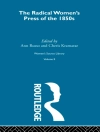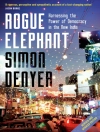Reminiscent of More’s Utopia and Swift’s Gulliver’s Travels, Denis Veiras’s History of the Sevarambians is one of the great utopian novels of the seventeenth century. Set in Australia, this rollicking adventure story comes complete with a shipwreck, romantic tales, religious fraud, magical talismans, and supernatural animals. The current volume contains two versions of Veiras’s story: the original English and the 1738 English translation of the expanded French version. Veiras’s work was well known in its own time and has been translated into a number of languages, including German, French, Russian, and Japanese, while the English version has been largely forgotten. The book has been read to teach a variety of political doctrines, and also has been cited as an early development in the history of ideas about religious toleration. It reveals a great deal about early modern English, Dutch, and French attitudes toward other cultures. One of the first utopian writings to qualify as a novel, it can be interpreted as a metaphor for human life, in all its complexity and ambiguity.
Содержание
Introduction
Notes
Bibliography
The Original Texts
The Prints
The Publisher to the Reader
Part I (1675)
Part II (1679)
The History of the Sevarambians (1738)
The Author’s Preface
Part I
Part II
Part III
Part IV
Part V
Index
Об авторе
John Christian Laursen is Professor of Political Science at the University of California at Riverside. He is the editor of many books, including
Religious Toleration: ‘The Variety of Rites’ from Cyrus to Defoe.
Cyrus Masroori is Assistant Professor of Political Science at California State University at San Marcos.












